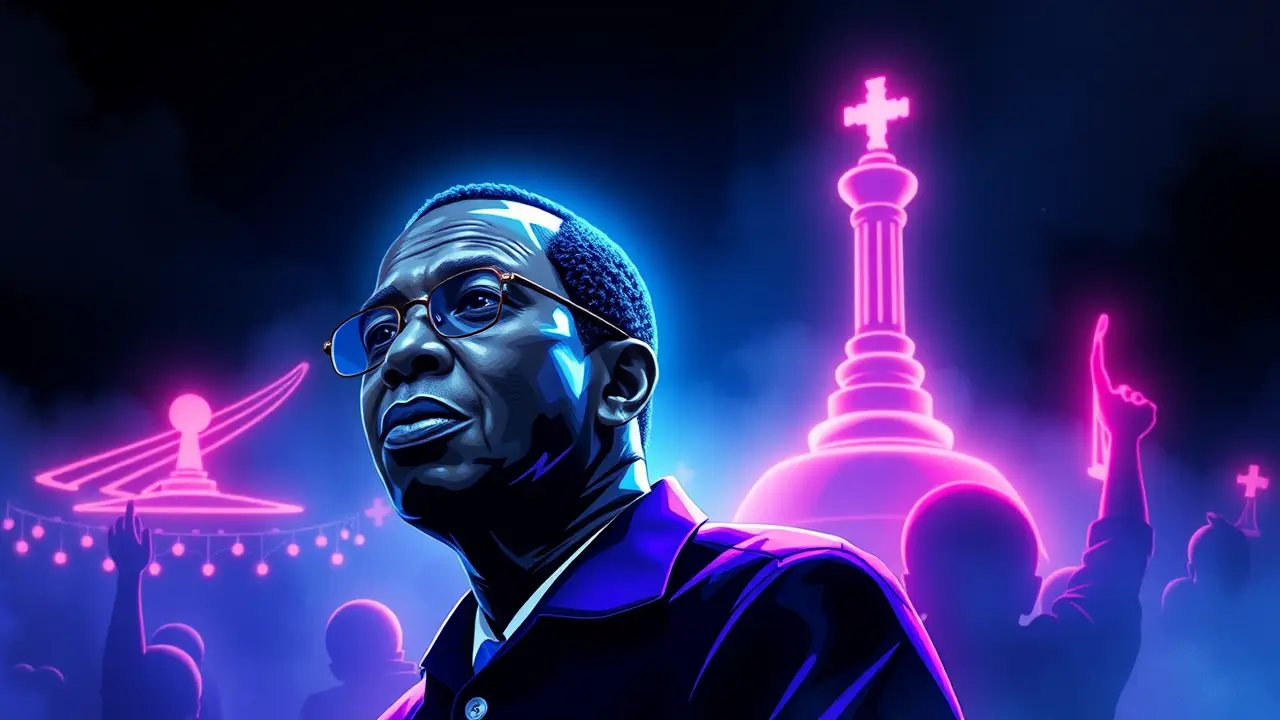Kenyan Political Leader Raila Odinga Dies at 80
The political landscape of Kenya, and indeed all of Africa, has been irrevocably altered with the passing of Raila Odinga at the age of 80, a titan whose career was a masterclass in the enduring complexities of power—its pursuit, its sharing, and its profound limitations. Odinga’s story is not merely one of five unsuccessful presidential bids, a statistic that for a lesser figure would define a career of failure, but rather a deep and analytical study in political resilience and strategic realignment.Like a chess grandmaster in a perpetual match for the soul of a nation, Odinga understood that the path to influence was not always a direct charge toward the executive mansion but often a series of calculated flanking maneuvers through coalition governments and power-sharing agreements. His tenure as Prime Minister from 2008 to 2013, a role born from a precarious power-sharing deal to quell the horrific post-election violence of 2007, stands as a testament to this very understanding; it was a Churchillian moment of stepping into a breach not of his own making to steady a nation on the brink, demonstrating that leadership is sometimes measured not by the title one holds but by the crises one contains.To analyze Odinga is to analyze modern Kenyan history itself—the son of Jaramogi Oginga Odinga, the nation's first vice-president, his life was inextricably woven into the fabric of its post-colonial struggle, from his early detention as a political prisoner under the Daniel arap Moi regime to his pivotal role as a pro-democracy crusader in the 1990s, which helped pave the way for the multi-party system. His presidential campaigns, particularly the bitterly contested 2007 and 2017 elections, were not just electoral events but seismic societal fractures that exposed deep ethnic and political fault lines, the consequences of which will be studied by political risk analysts for generations.The question now for Kenya is not simply who will fill the void left by the 'Agwambo' (the mysterious one), but how the delicate political equilibrium, so often negotiated through his formidable presence, will hold. His absence creates a power vacuum of monumental proportions within the Orange Democratic Movement and the broader opposition, potentially leading to significant fragmentation or a dramatic realignment of political alliances ahead of the next electoral cycle.The historical parallel is clear: the departure of a foundational figure like Nelson Mandela in South Africa forced a re-evaluation of the nation's political identity, and Kenya now faces a similar moment of reckoning. Expert commentary from seasoned East Africa watchers suggests that while his legacy as a defender of democracy and a champion of 'the people' is secure, his ultimate inability to capture the presidency will forever remain a central, poignant paradox of his biography—a leader who shaped the game more than he was able to finally win it.The broader context of his passing resonates across the continent, marking the end of an era for a certain breed of liberation-era politician whose personal narrative was synonymous with the nation's own turbulent journey. The potential consequences are vast, ranging from a period of unstable political maneuvering to, perhaps, an opportunity for a new generation of leaders to emerge, unburdened by the historical baggage of the past but lacking the unifying, if divisive, force of a figure like Odinga. His was a life of immense consequence, a five-act political drama filled with soaring victories, crushing defeats, and, most tellingly, the shared power in between, leaving behind a nation to contemplate a future without its most enduring and enigmatic protagonist.
Latest News
The charts are whispering what the true believers have felt in their bones for weeks—Dogecoin is carving out a bottom.
17 hours ago5 comments
The Institute for Fiscal Studies has thrown a stark warning onto Rachel Reeves's desk, urging the Chancellor to confront a potential £22 billion shortfall in
17 hours ago3 comments
Alright, let's break down this absolute heater of a performance from the Chicago Blackhawks, because if you missed this one, you missed a party.
18 hours ago5 comments
The ice was hot last night in the NHL, folks, serving up a slate of games that felt less like a regular season Tuesday and more like a playoff preview with a
18 hours ago3 comments
The XRP chart is painting a tantalizing picture for those with the stomach to withstand the relentless pressure from crypto's leviathans.
18 hours ago4 comments
It’s in the small shifts, the quiet recalibrations of a Thursday morning, where the most meaningful change often takes root.
18 hours ago4 comments
In a move that sent ripples of quiet confidence through the crypto ecosystem, blockchain intelligence firms tracked a monumental treasury allocation from
18 hours ago4 comments
In a move that would have drawn a nod of approval from historical figures like Churchill, who understood the delicate balance of power within democratic
18 hours ago2 comments
DA
Daniel Mwangi123k22 hours ago
wow this is huge for kenyan politics tbh who even steps into that void now
0
JA
Jamal Otieno123k24 hours ago
wow he was 80? idk why i always pictured him as so much younger smh what a legacy tho
0
JA
Jamie Lawson123k1 day ago
another political era ends and we just get the notification on our feeds like it's another product launch idk it all feels so distant
0
JA
Jamie Lowe123k1 day ago
the way they describe his life as a five-act drama is so vivid tbh such a complex legacy, all those colors of victory and defeat
0
BR
Brian Kiprono123k1 day ago
wow this is a lot to process tbh, still trying to wrap my head around it all
0
BR
Brian Mwangi123k1 day ago
i’ve loved reading your takes on politics but this feels a bit over the top tbh like he was just a politician
0
JA
Jamie Larson123k2 days ago
another political era ends and we just scroll past it on our phones idk it all feels so distant
0
